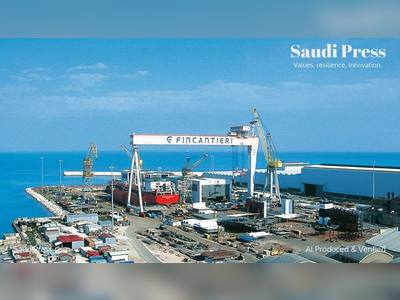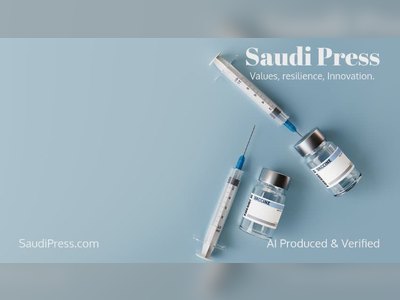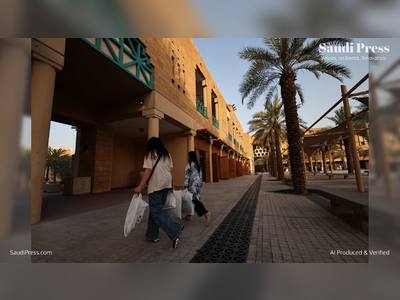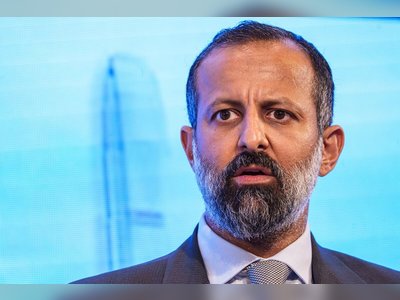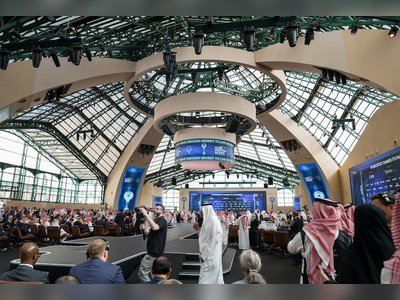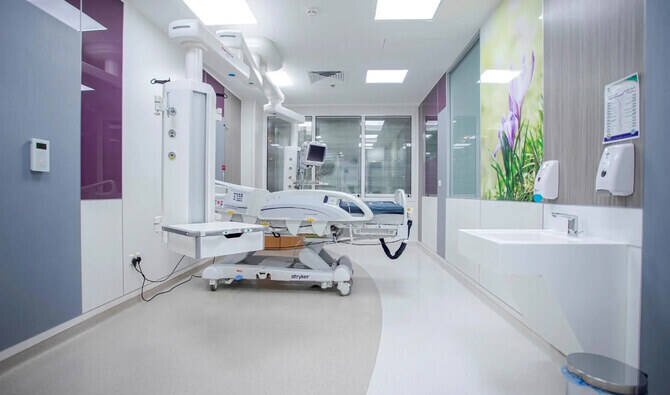
Saudi Arabia and UAE Dominate Healthcare Deals in GCC, Driving Growth and Investment
The two countries accounted for nearly 92% of investment activity in the Gulf's healthcare sector over the past four years, underscoring the region's growing appeal to investors.
According to JLL, Saudi Arabia and the UAE have been at the forefront of healthcare investment activity in the Gulf Cooperation Council (GCC) between 2021 and April 2025.
The two countries were responsible for nearly 92% of the almost 400 transactions recorded during this period.
Saudi Arabia led with 170 deals, followed closely by the UAE with 198.
This trend highlights both nations' efforts to expand their healthcare infrastructure as part of national transformation programs such as Saudi Vision 2030 and the UAE's Ministry of Health and Prevention's strategy for 2023-2026.The GCC healthcare sector is projected to grow significantly due to several factors.
The region's health-conscious, tech-savvy youth population is driving demand for preventive care, wellness services, and digital health solutions.
Additionally, an ageing population is increasing the need for geriatric care and chronic disease management.
By 2030, the GCC population is expected to reach 69.92 million, creating unprecedented demand for comprehensive healthcare services.National transformation programs are actively injecting capital into the sector and fostering public-private partnerships.
Saudi Arabia's Vision 2030 aims to modernize its healthcare system by implementing new technologies and increasing private-sector participation to achieve national health goals.
The UAE's advanced digital infrastructure is improving patient access and efficiency through initiatives such as the Riayati platform and the unified Electronic Health Records system.Investors are prioritizing strong value propositions supported by sustained government commitment to develop world-class medical facilities.
As a result, the sector has become a strategic investment priority.
The shift toward patient-centered care models is driving spending on patient interaction platforms, premium facilities, and advanced diagnostic technologies that promote holistic patient experiences.The digitalization wave sweeping across the healthcare ecosystem has accelerated partnerships with global technology leaders, fueling investments in health-tech innovations such as telemedicine and artificial intelligence-powered diagnostics.
Saudi Arabia recently signed more than a dozen high-impact memoranda of understanding with leading international health institutions and biotechnology organizations.Early-stage investments have focused on health-tech and outpatient services across various sectors including wellness, mental health, beauty and skin care, and home care.
Mergers and acquisitions activity has concentrated on hospitals and clinics, reflecting industry expansion and consolidation.
Total funding in the GCC healthcare sector exceeded $1.13 billion between 2021 and April 2025, with a significant increase in interest from investors.The initial public offering (IPO) landscape is also maturing, with healthcare providers, medical suppliers, and pharmaceutical companies leading market activity.
Market analysts expect more IPOs soon due to impending economic concerns such as US tariffs and forecasts of lower oil prices in 2026.Looking ahead, the GCC healthcare investment landscape is likely to strengthen further.
Investments targeting digital health solutions and telemedicine platforms are expected to grow, with larger funding rounds for established digital health players.
The health-tech sector is projected to mature through increased M&A activity as larger entities acquire successful startups.
Accelerated adoption of AI and data analytics is also anticipated, with capital directed toward improving diagnoses, treatment, and operational efficiency.Investment momentum is expected to shift toward preventive healthcare frameworks and personalized medicine, including genetic testing, longevity-focused clinical programs, health monitoring technologies, and smart health coaching platforms.
The future of healthcare investment in the GCC region holds significant potential not only for financial returns but also for contributing to a fundamental transformation of regional healthcare delivery that will impact millions of lives for generations to come.
The two countries were responsible for nearly 92% of the almost 400 transactions recorded during this period.
Saudi Arabia led with 170 deals, followed closely by the UAE with 198.
This trend highlights both nations' efforts to expand their healthcare infrastructure as part of national transformation programs such as Saudi Vision 2030 and the UAE's Ministry of Health and Prevention's strategy for 2023-2026.The GCC healthcare sector is projected to grow significantly due to several factors.
The region's health-conscious, tech-savvy youth population is driving demand for preventive care, wellness services, and digital health solutions.
Additionally, an ageing population is increasing the need for geriatric care and chronic disease management.
By 2030, the GCC population is expected to reach 69.92 million, creating unprecedented demand for comprehensive healthcare services.National transformation programs are actively injecting capital into the sector and fostering public-private partnerships.
Saudi Arabia's Vision 2030 aims to modernize its healthcare system by implementing new technologies and increasing private-sector participation to achieve national health goals.
The UAE's advanced digital infrastructure is improving patient access and efficiency through initiatives such as the Riayati platform and the unified Electronic Health Records system.Investors are prioritizing strong value propositions supported by sustained government commitment to develop world-class medical facilities.
As a result, the sector has become a strategic investment priority.
The shift toward patient-centered care models is driving spending on patient interaction platforms, premium facilities, and advanced diagnostic technologies that promote holistic patient experiences.The digitalization wave sweeping across the healthcare ecosystem has accelerated partnerships with global technology leaders, fueling investments in health-tech innovations such as telemedicine and artificial intelligence-powered diagnostics.
Saudi Arabia recently signed more than a dozen high-impact memoranda of understanding with leading international health institutions and biotechnology organizations.Early-stage investments have focused on health-tech and outpatient services across various sectors including wellness, mental health, beauty and skin care, and home care.
Mergers and acquisitions activity has concentrated on hospitals and clinics, reflecting industry expansion and consolidation.
Total funding in the GCC healthcare sector exceeded $1.13 billion between 2021 and April 2025, with a significant increase in interest from investors.The initial public offering (IPO) landscape is also maturing, with healthcare providers, medical suppliers, and pharmaceutical companies leading market activity.
Market analysts expect more IPOs soon due to impending economic concerns such as US tariffs and forecasts of lower oil prices in 2026.Looking ahead, the GCC healthcare investment landscape is likely to strengthen further.
Investments targeting digital health solutions and telemedicine platforms are expected to grow, with larger funding rounds for established digital health players.
The health-tech sector is projected to mature through increased M&A activity as larger entities acquire successful startups.
Accelerated adoption of AI and data analytics is also anticipated, with capital directed toward improving diagnoses, treatment, and operational efficiency.Investment momentum is expected to shift toward preventive healthcare frameworks and personalized medicine, including genetic testing, longevity-focused clinical programs, health monitoring technologies, and smart health coaching platforms.
The future of healthcare investment in the GCC region holds significant potential not only for financial returns but also for contributing to a fundamental transformation of regional healthcare delivery that will impact millions of lives for generations to come.

